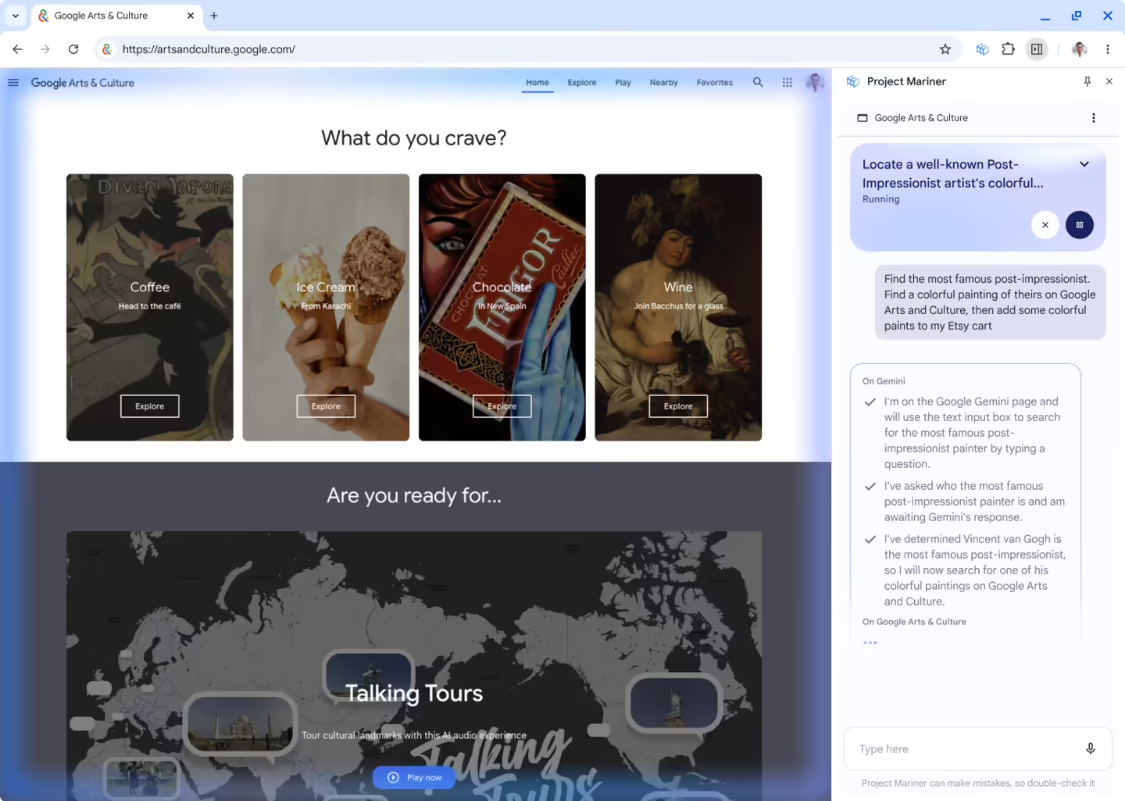Wednesday, US time.GoogleReleased a website that you can browse on your ownAgent(A.I. agent).This experimental tool is capable of navigating spreadsheets, shopping sites, and other online services and then performing actions on behalf of the user.

Currently, chatbots can answer questions, write poetry or generate images. In the future, they may also be able to independently perform tasks such as online shopping and operate tools such as spreadsheets.
The prototype of the smart body that Google is launching is called Mariner. Several tech companies are developing similar intelligences, including startups like OpenAI and Anthropic, which have also released similar prototypes capable of autonomously using software, websites, and other online tools.
Google's newest release, Mariner, is based on the same day's simultaneous unveiling of the Gemini 2.0 artificial intelligence model, the technology at the heart of many of Google's AI products and research projects. Different versions of Gemini are used in the chatbot of the same name and in AI Overviews, an AI search tool that directly answers users' questions.
“Users simply enter a request in their browser and Mariner takes action on their behalf.," said Jaclyn Konzelmann, a Google program manager, in an interview.
Gemini is a mathematical system known as a neural network that learns new skills by analyzing massive amounts of data. For example, by recognizing patterns in articles and books collected from the Internet, neural networks can enable automatic text generation.
The latest version of Gemini is able to learn from a wide range of data types, including text, images and sounds. This may include images that show how people use spreadsheets, shopping sites, and other online services. Based on what Gemini learns, Mariner can operate these services instead of the user.
"It knows which button needs to be pressed to complete an action," Demis Hassabis, head of Google's Core AI Lab, said in an interview. "It's able to perform tasks in reality."
Konzelman adds that Mariner was originally designed to collaborate with users to accomplish tasks. For example.Mariner can add items to the shopping cart while the user is browsing for them in the browser, but the purchase needs to be made by the user.
Google CEO Sundar Pichai said in a blog post that these technological advances "bring us closer to realizing the AI vision of a universal assistant."
As an extension to Chrome, Google's dominant browser, Mariner becomes an important part of the company's AI strategy. However, this plan may hit a roadblock. The U.S. Department of Justice has asked a federal court to force Google to sell or break up Chrome after its search engine was ruled an illegal monopoly.
In addition, the technology itself faces challenges. Konzelman acknowledges that Mariner, like other chatbots, can make mistakes because it operates on a data-based model. While errors when generating text are sometimes imperceptible, they can be more obvious when the system tries to use a website or perform an action.
"Can it be completely accurate at this point? Not yet," Conzelman admits. "It's still an experimental technology."
Currently, Google has opened Mariner to a small number of external testers, but has not yet announced plans for a full release.
On the same day, Google also showed off a new version of Project Astra, a smartphone assistant that not only responds to users' image and text input, but also supports voice commands. Similar to the technology launched by OpenAI earlier this year, Astra surpasses traditional digital assistants like Apple Siri in terms of functionality.
The new version of Project Astra is also yet to be publicly released.